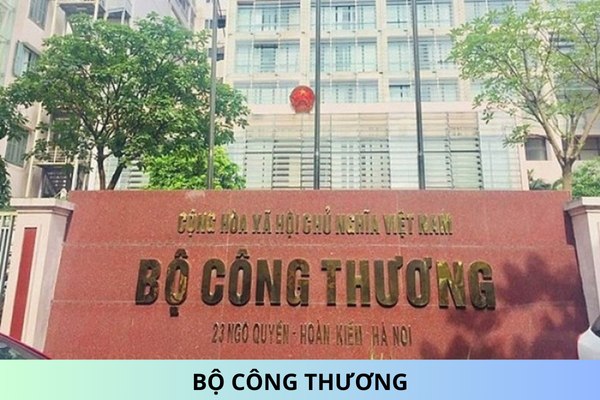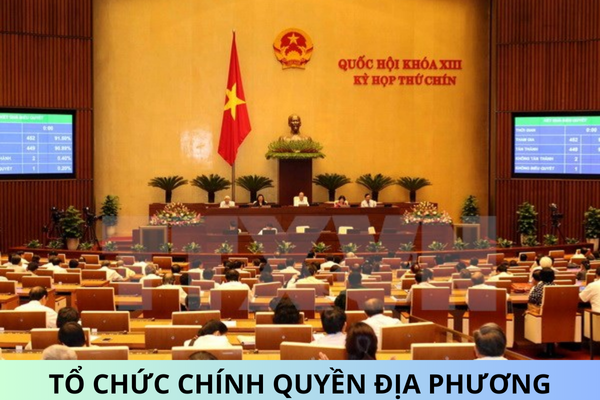Under Resolution 27 on salary reform, who are not eligible for a salary increase in Vietnam?
Which officials are not eligible for a salary increase under Resolution 27 on salary reform in Vietnam? - Ms. Quynh Anh (Cao Bang)
Under Resolution 27 on salary reform, who are not eligible for a salary increase in Vietnam?
According to Section 2 of Resolution 27-NQ/TW in 2018, salary reform is not only applicable to the public sector but also to the business sector.
Specifically, Resolution 27-NQ/TW in 2018 will reform the salary policy for officials, public employees, armed forces, and workers in enterprises as issued by the Central Executive Committee.
However, during the discussion session on the economic and social situation, the Minister of Home Affairs and the Minister of Labor, War Invalids and Social Affairs addressed the salary reform issue starting from July 1, 2024, as follows:
The Minister of Labor, War Invalids and Social Affairs expressed the following opinion: When building the new 05 salary scale for officials, and public employees based on job positions and leadership titles, the special salary policy mechanisms and other non-salary allowances for civil servants will be abolished.
Furthermore, a review found that 36 agencies and units in certain sectors will no longer enjoy special salary policies. In fact, some agencies may face a 50% reduction in salaries if a horizontal salary scale is implemented.
According to the discussion of the Minister of Home Affairs, in the upcoming salary reform, these 36 units may no longer receive special salary policies, which include additional allowances beyond the general salary scale ranging from 0.66 to 2.43 times.
Additionally, Point b, Clause 1, Article 4 of Resolution 01/2021/UBTVQH15 in 2021 also stipulates that administrative agencies currently applying lump-sum payment policies or special financial and income mechanisms, as approved by competent authorities, must implement a unified salary, allowance, and income regime, and abolish special salary and income policies.
Therefore, during the salary reform, these cases must be transferred and integrated into the new salary scale.
If these special salary and income mechanisms are abolished, the new salary and allowances for these officials may be lower than before the salary reform.
Moreover, according to statistics and reviews conducted by the Ministry of Home Affairs, some officials and public employees may even face a 50% reduction in salaries when the new salary scale is implemented.
Thus, based on the aforementioned grounds according to Resolution 27-NQ/TW in 2018, officials belonging to the 36 units currently applying special financial and income mechanisms mentioned above may not be eligible for a salary increase during the salary reform.
Under Resolution 27 on salary reform, who are not eligible for a salary increase in Vietnam? - image from internet
What are regulations on the current statutory pay rate for officials in Vietnam?
Pursuant to Article 3 of the Decree 24/2023/ND-CP stipulating statutory pay rate:
Statutory pay rate
1. The statutory pay rate shall be used as the basis for:
a) Determining the levels of salaries in payrolls, allowances and other benefits as per the law with regard to individuals as defined in Article 2 of this Decree;
b) Determining the levels of subsistence allowances as per the law;
c) Determining contributions and benefits concerning the statutory pay rate.
2. From July 01, 2023, the statutory pay rate is VND 1.800.000 per month.
3. The authorities and entities that are implementing the specific financial and income mechanism at central level adopted by competent authorities for certain authorities and administrative units shall continue implementing this mechanism until the comprehensive reform of salary policies under the Resolution No. 27-NQ/TW dated May 21, 2018 of the 7th Meeting of the 12th Central Executive Committee is implemented; the increase in monthly salaries and incomes calculated using the statutory pay rate of VND 1.800.000/month from July 01, 2023 must not exceed the average increase in salaries and incomes in 2022 (excluding the increase in salaries and incomes resulted from adjustment of rank- or grade-based pay rate).
4. The Government shall request the National Assembly to consider adjusting statutory pay rate in conformity with the capacity of the state budget, consumer price index and national economic growth rate.
As regulations above, the current statutory pay rate for officials in Vietnam is VND 1.800.000/month. This rate will be applied until the end of June 30th, 2024.
When implementing salary reform under Resolution 27 in Vietnam, what percentage does the statutory pay rate of officials account for?
According to Subsection 3.1, Section 3, Part 2 of Resolution 27-NQ/TW in 2018, which stipulates the guiding principles, objectives, and content of the reform as follows:
GUIDING PRINCIPLES, OBJECTIVES, AND CONTENT OF THE REFORM
...
3. Content of the reform
3.1. For officials, public employees, and armed forces (public sector)
a) Designing a new salary structure, including statutory pay rate (accounting for about 70% of the total salary fund) and allowances (accounting for about 30% of the total salary fund). Additional bonuses (bonus fund equivalent to about 10% of the annual total salary fund, excluding allowances).
b) Developing and issuing a new salary scale system based on job positions and leadership titles to replace the current salary scale system; transferring the old salary to the new one, ensuring that it is not lower than the current salary received, including:
...
Therefore, when implementing salary reform under Resolution 27, the statutory pay rate of officials will account for 70% of the total salary fund, with allowances accounting for the remaining 30% as stipulated by the law.
Additionally, there will be the addition of bonuses (bonus fund equivalent to about 10% of the annual total salary fund, excluding allowances).
Best regards!











